In-synch blitz: Multiple attacks herald Taliban ‘spring offensive’
President Hamid Karzai was moved to a safe area and his palace went into lockdown.
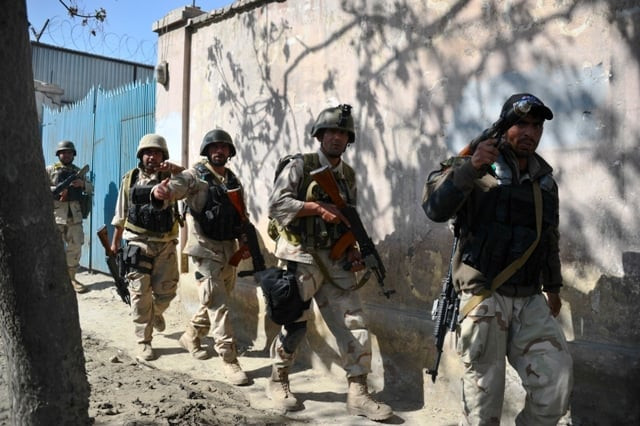
The assault, one of the most serious on the capital since US-backed Afghan forces toppled the Taliban regime in 2001, highlighted the ability of militants to strike the heavily-guarded diplomatic zone even after more than 10 years of war.
Heavy fighting erupted again more than five hours after the Taliban first struck, as dusk was falling over the capital. Several Afghan parliamentarians joined security forces repelling attackers from a roof near parliament.
Large explosions shook the diplomatic enclave of Kabul. Billows of black smoke rose from embassies while rocket-propelled grenades whizzed overhead. Heavy gunfire could be heard from many directions as Afghan security forces tried to repel Taliban fighters.
Taliban fighters, some of them dressed in women’s burqas, also launched simultaneous assaults in three other provinces of Afghanistan.
In the eastern city of Jalalabad, they attacked a foreign force base near a school and a blast went off near the airport.
The ministry of interior said 19 insurgents, including suicide bombers, died in the encounters across the country and two were captured. Fourteen police officers and nine civilians were wounded.
Japan’s Kyodo news agency said three rockets landed in the Japanese embassy but nobody was hurt and staff had evacuated to a nearby air raid shelter. Militants also attacked government buildings in Lugar province, and a police facility in the town of Gardez in Paktya province.
Attackers also fired rockets at the parliament building in the west of Kabul. Afghan media said fighters stormed the Star Hotel complex near the presidential palace and Iranian embassy. The hotel’s windows were blown out and smoke billowed from the building.
Haqqanis involved?
Meanwhile, US ambassador Ryan Crocker said it was unlikely the Afghan Taliban had the capacity to launch Sunday’s attacks on its own, and speculated that the Haqqani network - whose fighters are based in the Afghanistan-Pakistan border area - were involved.
“The Taliban are really good at issuing statements. Less good at actually fighting,” he told CNN. “My guess, based on previous experience here, is this is a set of Haqqani network operations out of North Waziristan and the Pakistani tribal areas. Frankly, I don’t think the Taliban is good enough.”
Afghan Interior Ministry spokesman Sediq Sediqqi told Reuters initial findings showed that the Haqqanis were involved in Sunday’s attacks. The Haqqani network is one of the most divisive issues between Washington and Islamabad and evidence that the Haqqanis were behind the latest attacks in Afghanistan could hamper efforts to patch up US-Pakistan ties between the strategic allies.
Meanwhile, Pakistan’s Foreign Minister Hina Rabbani Khar expressed deep concerns over the attacks in Afghanistan. “Pakistan strongly condemns terrorism in all forms and has consistently encouraged dialogue to resolve issues in Afghanistan,” Khar said.
Presidential lockdown
President Hamid Karzai was moved to a safe area and his palace went into lockdown during the attacks in Kabul including a failed attempt to target one of his deputies, officials said.
The embattled president was discussing the budget with a group of lawmakers when explosions and gunfire rocked three locations in the capital, one of his aides said.
Nato hails Afghan response
Nato forces in Afghanistan hailed the response of Afghan security forces to the series of attacks on Kabul, labelling the assaults ‘largely ineffective’.
“I am enormously proud of how quickly Afghan security forces responded to today’s attacks in Kabul,” said General John Allen, commander of Nato’s International Security Assistance Force (Isaf).
Published in The Express Tribune, April 16th, 2012.


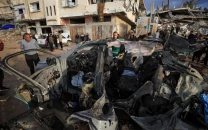
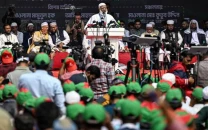

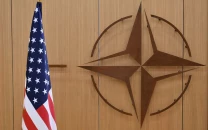
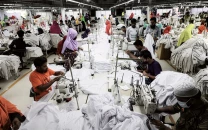












COMMENTS
Comments are moderated and generally will be posted if they are on-topic and not abusive.
For more information, please see our Comments FAQ